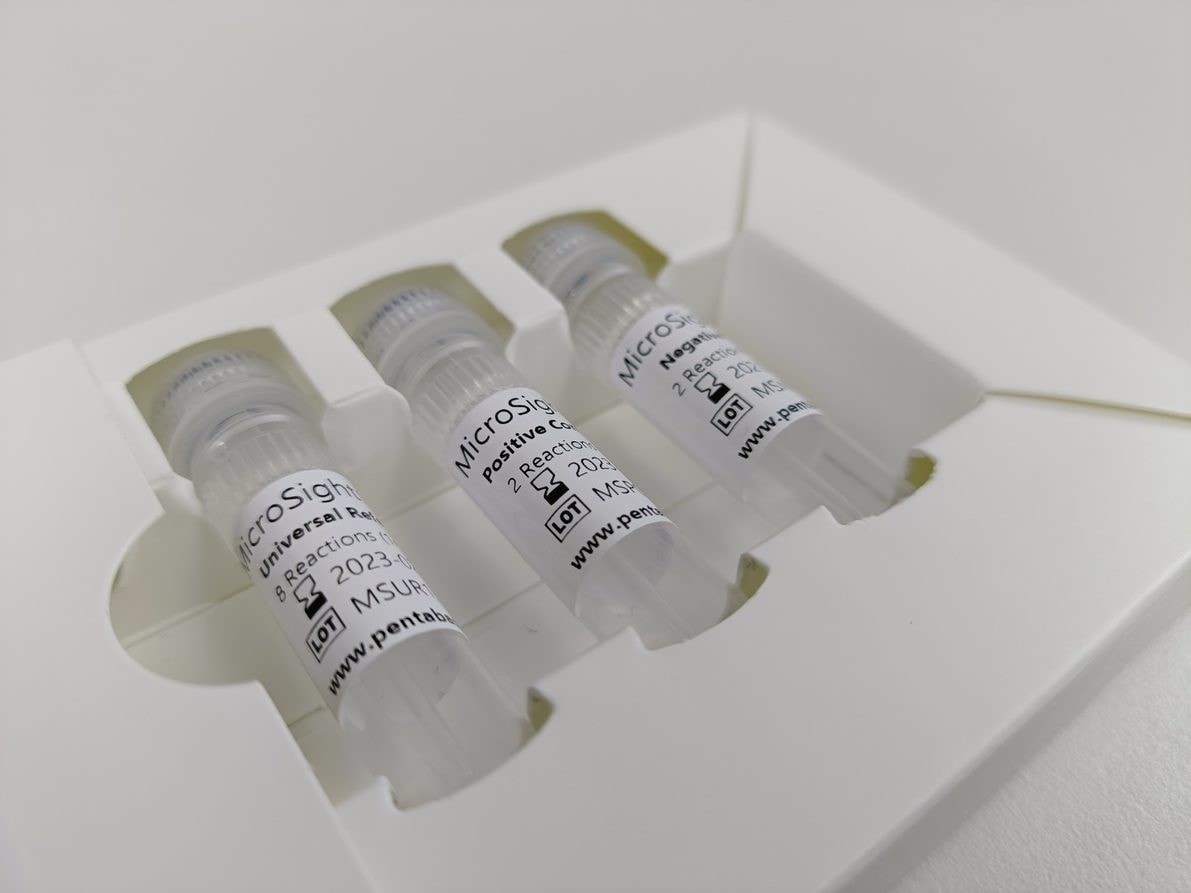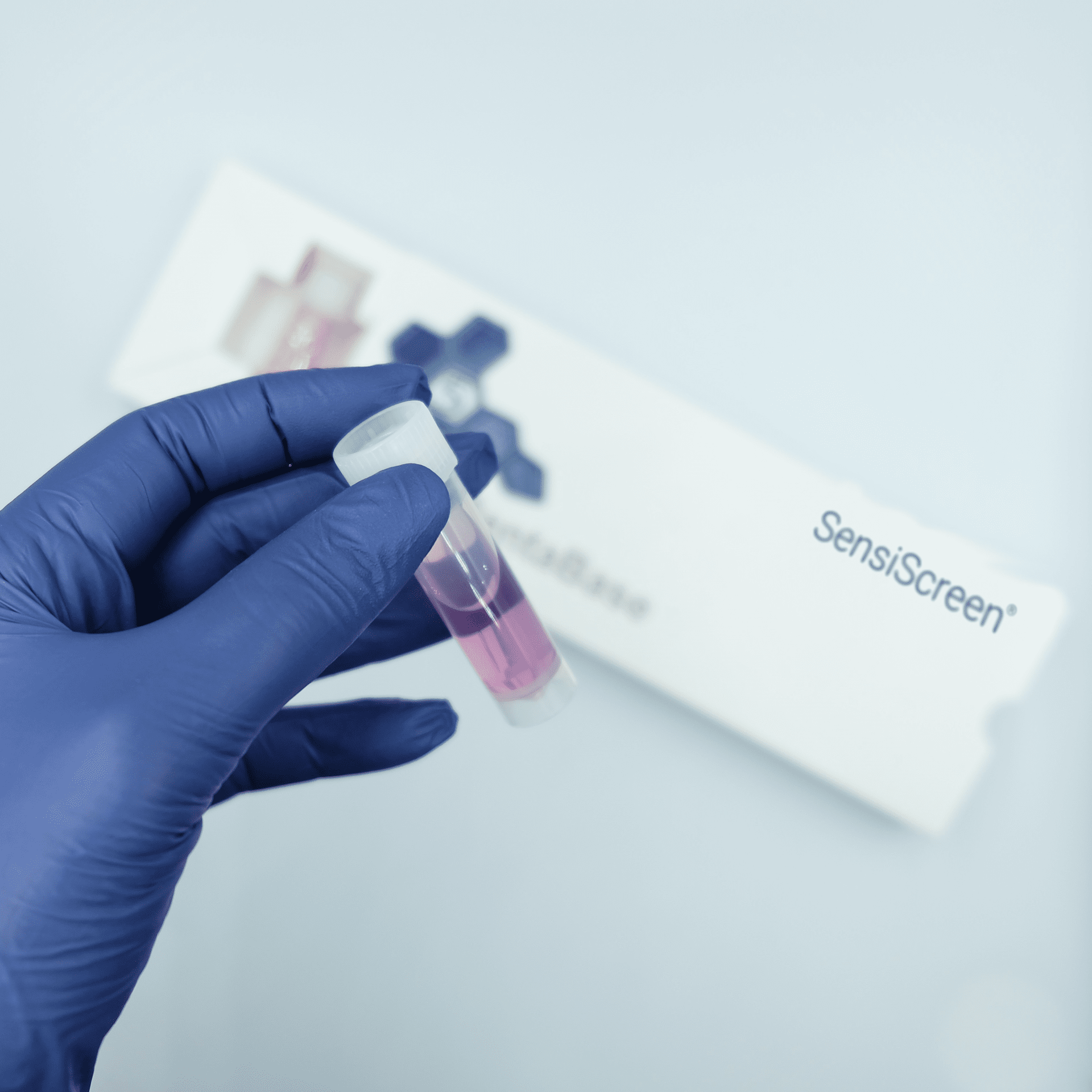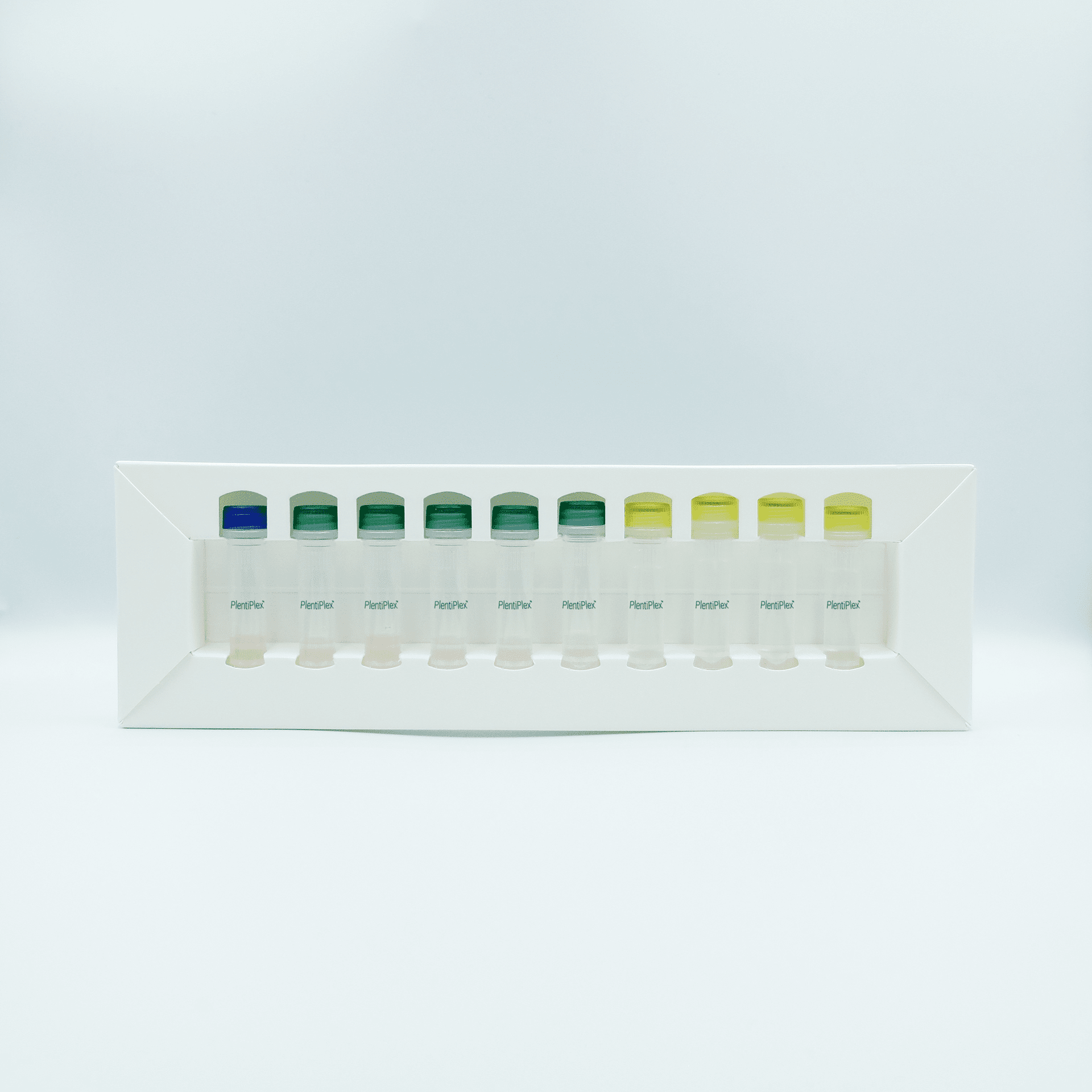
1-step HRM Analysis: MicroSight® MSI
Microsatellite instability (MSI) is a genomic alteration in the length of microsatellites provoked by a deficient DNA mismatch repair system. MSI is known to occur in several types of cancer e.g., colorectal cancer (CRC), which accounts for 10.7% of newly diagnosed cancers globally (3’rd most occurring) according to World Cancer Research Fund’s data (2020). Identification of MSI in tumours is important as a predictive factor of response to different therapies, in particular to immune checkpoint inhibitors, and accordingly the need for MSI analysis of these patients has significantly increased. The MicroSight® MSI 1-step HRM Analysis assay analyses five well-described mononucleotide microsatellite sequences: BAT25, BAT26, NR22, NR24, and MONO27, by Real-Time PCR and HRM. The assay evaluates microsatellite length of patient tumour DNA to patient non-tumour DNA or a universal reference, which makes it a valuable stratification tool for assisting cancer treatment planning. After the Real-Time PCR and HRM, a semi-automatic analysis will be made by the instrument software giving objective results in less than 2 hours.
Advantages of MicroSight® MSI:
- Results in less than two hours
- Minimal hands-on time
- Objective analysis – No biased data interpretation
- One instrument analysis – Low risk of cross contamination

Assay | CANCER DIAGNOSTICS: SensiScreen®
Common cancers including colorectal cancer, lung cancer and malignant melanoma are characterized by the accumulation of somatic mutations, some of which are known to affect a patient’s response to cancer treatments. SensiScreen® qPCR-based assays provide fast and reliable somatic mutation detection to support rapid initiation of the optimal cancer treatment.
The assay is available in 2 formats:
- Analysis of liquid biopsies
- Analysis of FFPE biopsies

Assays | Cancer diagnosis and stratification: PlentiPlex™ Mastocytosis
PlentiPlex™ Mastocytosis assay is intended for the detection of the KIT D816V mutation, which is among the WHO criteria for the diagnosis of mastocytosis. PlentiPlex™ Mastocytosis Assay utilises PentaBase’s unique DNA chemistry, known as Intercalating Nucleic Acid (INA™), which vastly increases both affinity and specificity of assay oligonucleotides towards the target region compared to assays based on standard DNA chemistries.
Advantages of PlentiPlex™ Mastocytosis:
- The Assay follows WHO criteria
- Applicable for large biopsies
- 2 formats (Ready-to-use & Dispense ready)
- Enables further personalised cancer treatment

Assays | Cancer diagnosis and stratification: PlentiPlex™ MSI
PlentiPlex™ MSI assays are intended for evaluation of impaired mismatch repair (MMR) and the resulting microsatellite instability affecting prognosis and selection of treatment in cancer patients. PlentiPlex™ MSI assays offer two different multiplexed MSI assays for the length analysis of five microsatellite loci. This makes PlentiPlex™ MSI assays valuable stratification tools for assisting cancer treatment planning.
Advantages of PlentiPlex™ MSI:
- Simple MSI stratification of solid tumors for treatment guidance
- Simplified four-step workflow
- Well-known validated loci
- Minimal hands-on time

Waldenström Lymphoma qPCR Assay: PlentiPlex™ MYD88
PlentiPlex™ MYD88 Waldenström Lymphoma qPCR Assay utilises PentaBase’s unique DNA chemistry, known as Intercalating Nucleic Acid (INA™) which vastly increases both affinity and specificity of assay oligonucleotides towards the target region compared to assays based on standard DNA chemistries.
The obtained results of PlentiPlex™ MYD88 Waldenström Lymphoma qPCR Assay are intended for identification of the presence of the MYD88 L265P, facilitating discrimination between Lymphoplasmacytic lymphoma/Waldenström macroglobulinemia (LPL/WM) and non-Hodgkin lymphoma
Advantages of PlentiPlex™ MYD88 :
- Results in less than two hours
- Open platform design
- High sensitivity due to INA™ chemistry
- Minimal hands-on time
